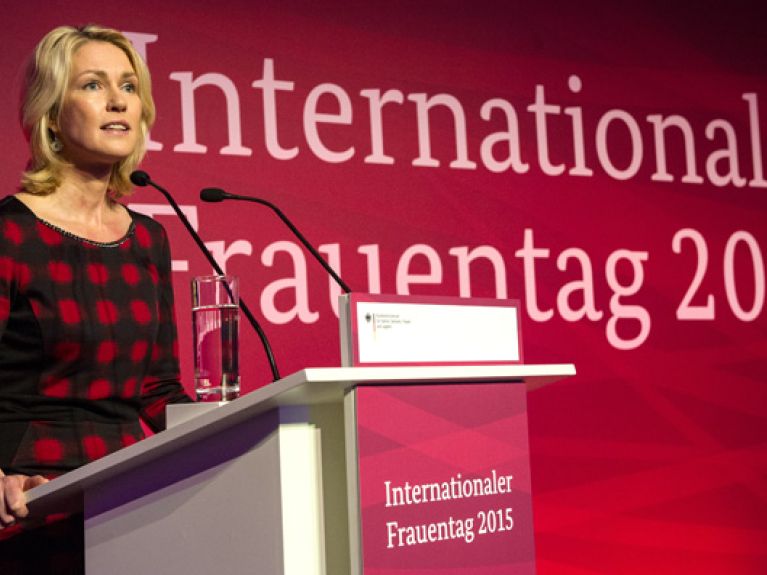Manuela Schwesig – woman for equal opportunities
One of her most important goals is equality of opportunity for women and men: Federal Minister Manuela Schwesig advocates the gender quota and cultural change at the workplace.

Less than one and a half years after becoming Federal Minister for Family Affairs, Senior Citizens, Women and Youth, Manuela Schwesig has scored a major political and personal success: a quota for women is to become mandatory in German supervisory boards for the first time. The Bundestag, Germany’s Lower House of Parliament, passed the measure in early March 2015. The law tabled by Ms Schwesig and Federal Minister of Justice Heiko Maas aims to markedly raise the proportion of women in leading positions in business and administration. Germany has some catching-up to do in this field. According to a study by the German Institute for Economic Research (DIW), women make up 18.4 percent of supervisory board members at Germany’s 200 largest companies, and 5.4 percent on their boards of management. The gender quota aims to change this as from 2016, when 30 percent of supervisory board members at about 100 DAX-listed companies will be required to be female. In future, 3,500 other companies will have to set binding targets for increasing the proportion of women in management. Federal Minister Schwesig speaks of a “cultural change” in the world of work, and a “historic step towards equal rights for women”. The law had been hotly debated for years.
Reconciling family life and politics
Manuela Schwesig has made equal opportunities one of her most important policy issues. She calls for equal career opportunities, as well as equal pay for equal work. According to the Federal Statistical Office, women in Germany are paid 22 percent less for their work on average than men. Ms Schwesig regularly draws attention to this “wage gap” in discussions with companies and trade unions. And she goes further: she intends to put a stop to unequal pay by increasing transparency, thus also ensuring more confidence and legal certainty.
A graduate in fiscal affairs, the minister believes much can be achieve with figures and quotas. However, even more will be needed for a cultural change at the workplace: for example a better work-life balance, which Manuela Schwesig is promoting with more nurseries and the “Parental Allowance Plus” act. “Parental Allowance Plus” supports parents who want to work part-time after the birth of a child. The Federal Minister for Family Affairs, who was born in 1974 in Frankfurt (Oder), is herself setting a good example. Together with three other ministers, Ms Schwesig stated publicly at the start of her term in office her determination to reconcile family life and politics.
Equal Pay Day on 20 March 2015

